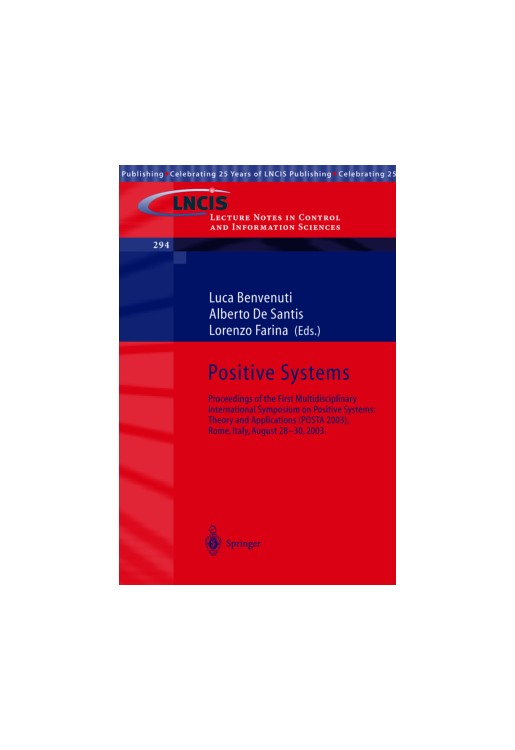


This book contains the proceedings of the First Multidisciplinary International Symposium on Positive Systems Theory and Applications (POSTA 2003) held in Rome, Italy, on August 28-30, 2003. Positive Systems are systems in which the relevant variables assume nonnegative values. These systems are quite common in applications where variables represent positive quantities such as populations, goods, money, time, data packets flowing in a network, densities of chemical species, probabilities etc. The aim of the symposium was to join together researchers working in the different areas related to positive systems such as telecommunications, economy, biomedicine, chemistry and physics in order to provide a multidisciplinary forum where they have the opportunity to exchange ideas and compare results in a unifying framework.
Positive Systems Theory.- Compartmental Systems.- Markov and Hidden Markov Models.- Queueing Systems.- Biological Models.- Max-Plus Algebra.- 2D Systems.- Behavioural Approach.- Constrained Control and Optimization.- Nonnegative Matrices.- Traffic Models.- Nonlinear Systems.- Economics.
check_circle
check_circle
